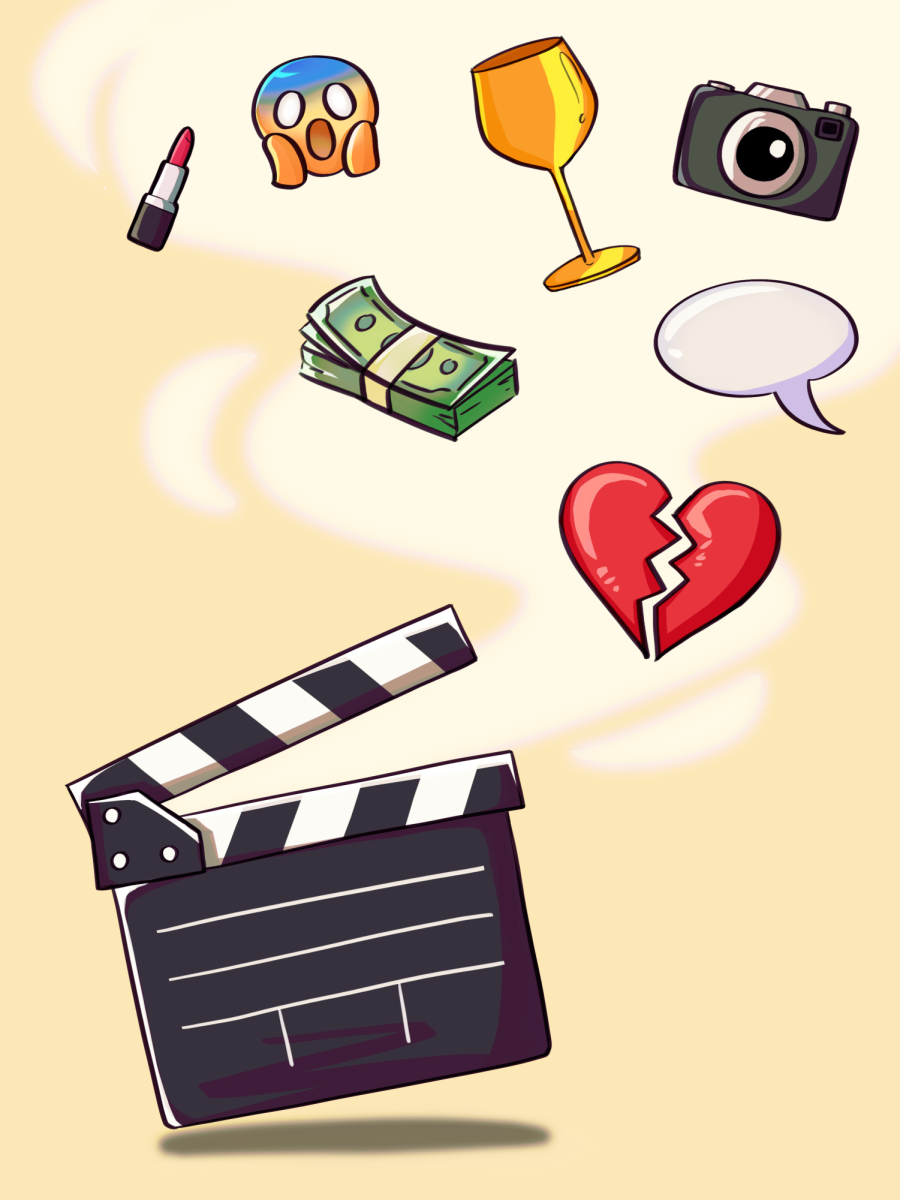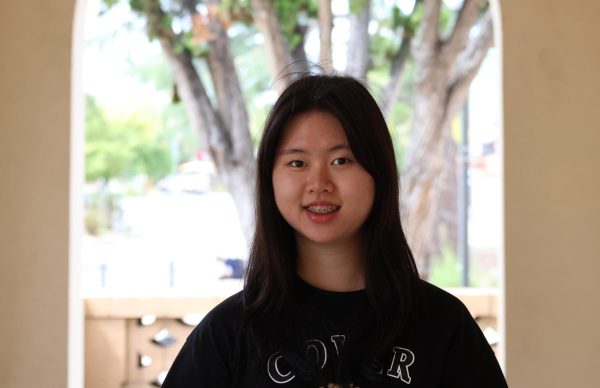Returning home from a long day of school, sophomore Anjali Dahncke eyes the TV remote on her couch with relief, excited to unwind with the latest episode of one of her favorite reality TV shows, “Survivor.”
Like many students with access to a wide variety of genres, Dahncke said she favors reality TV because of its lightheartedness.
“I feel like these types of shows are not very heavy, and they’re very good for if you’ve had a long day and you want to unwind and put something on in the background,” Dahncke said. “A lot of them are full of stupid drama and plot lines, but I think that’s really what draws a lot of people, because it’s a comforting, leisure activity after a hard day.”
Given the stress of high school, Dahncke said it’s important for students to take mental health breaks, and watching reality TV can be an effective outlet.
“Having a pause, even if it’s in watching something that’s not necessarily educational or contributing to your life in a huge way … is good because there’s so much going on in their lives outside of that, and they can have just a moment to debrief mentally,” Dahncke said.
With the stress of the COVID-19 pandemic, math teacher Sarah Gilmore, whose favorite reality shows are “Love is Blind,” “The Ultimatum” and “Made in Chelsea,” said she started watching reality TV during lockdown.
“Reality TV made it easy to disassociate into something meaningless that provided fun drama and distractions from what was happening in the real world,” Gilmore said. “Also, it seemed like the only thing people could hold conversations about was ‘Love is Blind.’”
She also said talking about reality TV shows, such as “Love is Blind,” made her more spirited and helped her make new connections during the COVID-19 lockdown.
“I remember having a full conversation about ‘Love is Blind’ with my local grocery store clerk and realizing that she was the first stranger I had talked to in months,” Gilmore said. “It was cool to see so many people latch onto something that we could all still share even while shut down in our homes.”
English teacher Mimi Park said she started watching a lot of reality TV when she was in college.
“I used to watch a lot of ‘American Idol’ since it was just one of those things you did together with your roommate or friends every week, and so it was really social and really fun to do,” Park said. “Then I stopped watching when I graduated college since I was too busy in law school, until I met somebody who had just been on ‘Survivor,’ actually, and he was one of the attorneys at the law firm that I was doing my internship with. So I started watching because I was really curious, and I got really hooked on the early seasons of ‘Survivor.’”
From survival competitions to dating series, Park said reality TV shows have shifted significantly over the years, especially with the rise of social media influencers, which is particularly evident in modern dating shows.
“As much as there’s still a skepticism about whether people can find love on TV or not, at least back then, you saw people who actually had careers and weren’t trying to be aspiring influencers,” Park said. “(Contestants) would look attractive, but they also look like normal people. And I think over the years, it’s become much more commodified to not just be on there, but to have a career where the reality show actually launches you.”
And Dahncke said reality dating shows can promote harmful dating expectations for younger viewers.
“The idea that, if this person is the same age as me, but they look like that or they act like that, it kind of gives more leeway for comparison,” Dahncke said. “Especially for dating shows, toxic behavior or relationships can get kind of romanticized because it’s just seen as the plot.”
Gilmore said she is aware of potential unhealthy relationship dynamics and behaviors when watching reality TV shows.
“I find myself recognizing the toxic dynamics and beauty standards and calling them out, which makes me hyper aware of those dynamics in general and more able to avoid them,” Gilmore said. “So, as long as we as humans recognize that toxic dynamics are not OK, I don’t think these shows reinforce them, but do bring attention to them in general.”
But Dahncke said it is easy for viewers to get invested in TV show contestants because of their relatability.
“That concept really grounds how much emotion we feel when we watch it because it’s not like they’re characters,” Dahncke said. “It feels like these are actual people that we can see ourselves in, in some way, even if they’re totally exaggerated or even if the drama feels somewhat manufactured. It still feels like there’s a connection that you don’t get as much when it’s entirely fictional. And I think that a lot of people can feel like their personal life or people in their life or even themselves is being reflected in the show that they’re watching.”
While many viewers naturally develop attachments to people on reality TV shows, Park said shows are often edited to portray a distorted reality.
“With parasocial relationships, I think the biggest thing is realizing that what we see is so edited,” Park said. “It’s such a small part of what this person and their relationships and everything might be like. But I think it is a human instinct for wanting to see commonalities for certain people. The ones that you feel commonalities with, you tend to root for, and those maybe who exhibit certain attributes that you don’t like, you maybe root against. It’s really important to remind yourself that no matter how they come off on television, it’s not their entire story.”
Gilmore said having a diverse cast helps provide a more accurate reflection of reality on TV.
“I think in order for reality TV to mirror reality — which is the selling point — people of different backgrounds and identities have to be included,” Gilmore said. “It does affect how much I enjoy the show as it feels less authentic otherwise, which makes it more difficult to dive into.”
Park also said diversity can appear in many ways.
“There’s (also) a lot of different types of diversity,” Park said. “The ‘Bachelor,’ ‘Bachelorette,’ they’re all very heteronormative and cisgender. When it comes to representing diversity across the entire realm of race, religion, LGBTQ, sexuality, all of that, I think it could be better. But on the other hand, they’ll only do it if they get the ratings to support it, as long as it keeps making the money.”
Though the industry has made some steps towards more diversity, Park said there is still a long way to go.
“Ultimately, broadcast corporations are in the business of money, so they’ll do what they need to do to make it seem like they’re increasing diversity,” Park said. “We’ve had one Asian Bachelorette, and she had one of the worst seasons. The cast clearly did not want to marry an Asian woman. The guy that she ended up choosing was terrible, and there was so much hate and terrible comments.”
While acknowledging diversity is important, Dahncke said the ultimate goal should be to find a fun, unique group of people.
“I would say that in recent years, it’s become a bigger thing to have diversity,” Dahncke said. “But if you’re casting a big group of people, I think the best way to do it isn’t necessarily to prioritize diversity or to not prioritize diversity. I think you should just focus on getting a group of people that’s interesting. And of course there should be diversity… (But) I think perspective should be a leading factor, because the types of perspectives and personality types that you’re throwing together into this mix are very important for how the show plays out.”
Overall, Gilmore said reality TV can provide more than just entertainment — it can offer an escape from the chaos of the real world.
Gilmore said, “Diving into drama that is absolutely absurd and trivial makes the absurdities of the real world a little easier to cope with, and it gives me something to bond with random people about that feels more lighthearted and fun than anything else happening around us.”


